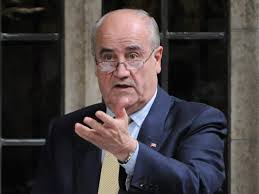The problem (or one of them) with the Harper government is that it is tone deaf. It listens to people, or claims to listen, but it does not hear. It does not hear those people who support or vote for parties other than the Conservatives. That’s not particularly surprising.
What is surprising is that on occasion the government is also deaf to members of its own Tory universe, people who have voted for Harper in the past and whose votes will be absolutely crucial in the 2015 election. I cannot think of a better example than the disrespect the Harper government has demonstrated for Canada’s veterans.
Veterans are part of that Tory universe. They are older. They have served their country loyally. They have earned the nation’s admiration. Their military experience inclines them, perhaps more than many other Canadians, to respect authority and to value law and order in society. The Conservative party should adore veterans.
So what happens? A group of veterans comes to Ottawa to protest to their minister the closure of eight regional veterans affairs offices. This is a small deal for government bean counters (a projected annual saving of $3.78 million) but it’s a very big deal to those veterans who relied on these convenient offices for advice and assistance on such matters as pensions and medical and post-service mental-health issues.
Their minister, Julian Fantino, keeps them awaiting for 70 minutes, does not bother to apologize, refuses to address their concerns, accuses them in effect of being stooges of a union (the Public Service Alliance of Canada, which paid some of their travel expenses to Ottawa), and sends the veterans away angry and frustrated, some of them in tears.
Under opposition attack, Fantino did apologize the next day for his thuggish behaviour, but the apology begs the real question: why didn’t Harper fire him on the spot? Ministers who belittle and abuse the people they are paid to serve – and make then cry! – have no place in the cabinet (or in Parliament, for that matter).
Another example is the standoff over the Canada Pension Plan. The CPP is exceptionally well run, but it is time for revisions. Most of the provinces feel the CPP no longer provides an adequate income for retirees. They want Ottawa to increase the payout by raising the contribution level for workers and employers alike.
That’s a reasonable request. It would not add to the federal deficit. What’s more, it would benefit all those baby boomers who are in, or entering, their retirement years – a large pool of potential Tory voters. But voices of reason are not always heard in Ottawa.
The premiers met a stone wall in Finance Minister Jim Flaherty. An increase in CPP contributions by employers might be called a payroll tax, and the Conservatives (unlike those tax-and-spend Liberals, wastrel New Democrats and irresponsible premiers) are not about to increase taxes. No, sir. Talk of pension reform will have to wait until the deficit has been eliminated.
Ontario and some other provinces will probably introduce their own measures to supplement the CPP, but they shouldn’t have to go it alone. The CPP is a national plan and has been for a half-century. All Flaherty had to do was to welcome the premiers’ representations, say he agreed with their concern that an aging population be well cared for, and invite provincial finance ministers to join him in planning CPP amendments, to be brought into effect when the federal budget is balanced.
But that didn’t, and won’t, happen for two reasons. First, ideological purity dictates that Flaherty reject any thought of anything that can be construed as a tax increase, Second, these Harper Tories have an inbred resistance to hearing, or heeding, anything provincial governments propose.
When I was a kid, adults would talk about people cutting off their nose to spite their face. That’s what the Harper people are doing these days by insulting veterans and ignoring pensioners.
Cambridge resident Geoffrey Stevens, an author and former Ottawa columnist and managing editor of the Globe and Mail, teaches political science at Wilfrid Laurier University and the University of Guelph. His column appears every Monday in the Waterloo Region Record and Guelph Mercury. He welcomes comments at [email protected]



